Table of Contents
During their weight loss journey, many people reach for fat burners. While these dietary supplements are not miracle pills that will lose weight for you, they can be an effective weight loss supplement. Especially if combined with a few effective strategies. What can you do to improve the effects of fat burners and achieve the physique you desire?
What are fat burners?
Fat burners are supplements that can help ease the way to your desired physique. They are designed to help burn more calories. They contain substances that can assist to increase weight loss, the oxidation (burning) of fat during exercise, or otherwise boost fat metabolism. Furthermore, they can also kick-start you into working out, allowing you to get more out of your workout and increase your energy expenditure. [1]
Types of fat burners
Fat burners fall into two main categories:
- Single-component – contain only one functional ingredient, such as synephrine or L-carnitine.
- Multicomponent – complex burners that combine several active ingredients. These often act even synergistically, which means that their combined effect is stronger than if taken separately.
Then these supplements can be classified into:
- Stimulant-based burners – contain stimulants that can help provide an energy boost to kick-start your performance. The most common is the aforementioned synephrine, but also caffeine, which can be found in green tea or forskolin.
- Stimulant-free burners – burners that do not contain stimulants. This category includes the aforementioned L-carnitine or CLA.
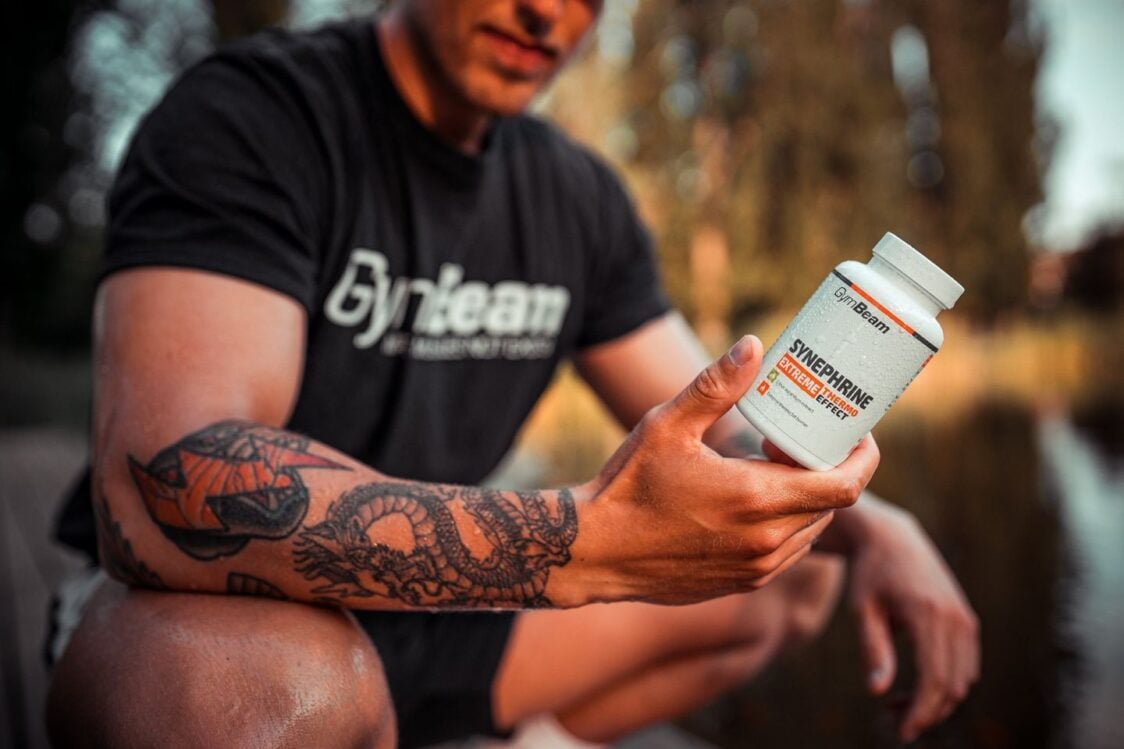
What effects can you expect from fat burners?
- Boost metabolism (thermogenic effect) – fat burners containing substances with a thermogenic effect contribute to the production of heat in the body (thermogenesis). Since the body needs to expend extra energy to generate heat, this is reflected in an increase in caloric expenditure. Thermogenic burners may contain a single active ingredient, such as caffeine, or combine multiple ingredients that complement each other.
- They support fat metabolism – fat burners help burn more fatty acids (fat) as part of energy metabolism. A typical example is L-carnitine, whose role is to transport fatty acids to the cell’s mitochondria, where it is then burned to produce energy.
- They can affect appetite – some fat burners can help maintain stable blood sugar (glycaemia) levels, which can reduce appetite. This will help maintain a calorie deficit and increase the chance that you will keep the weight off after losing weight. [1]
- They can block the absorption of certain nutrients – substances contained in some fat burners can act to some extent as blockers of nutrient absorption. This means that the body does not absorb the full caloric value of a given food, and so its caloric load is alleviated. An example of such a substance is white bean extract (Phaseolus vulgaris), which acts as a carbohydrate blocker. [21]
- Promote weight loss – given all the points described above, fat burners are a good weight loss aid.
Fat burners obviously won’t do the work for you when it comes to weight loss, but they can make the whole process of getting the physique you want a little easier. They are a kind of superstructure in the process of shedding extra kilos. If you have a solid foundation in the form of a calorie deficit that can be achieved through diet and exercise, fat burners can make the weight loss journey even easier.
In order for the supplementation of burners to be truly effective, it is necessary that you “prepare the way” for them. Therefore, what can you do to make the most of the effects of these aids and manage to lose weight? With the following tips, you can boost the effect of fat burners and get the most out of their effects.
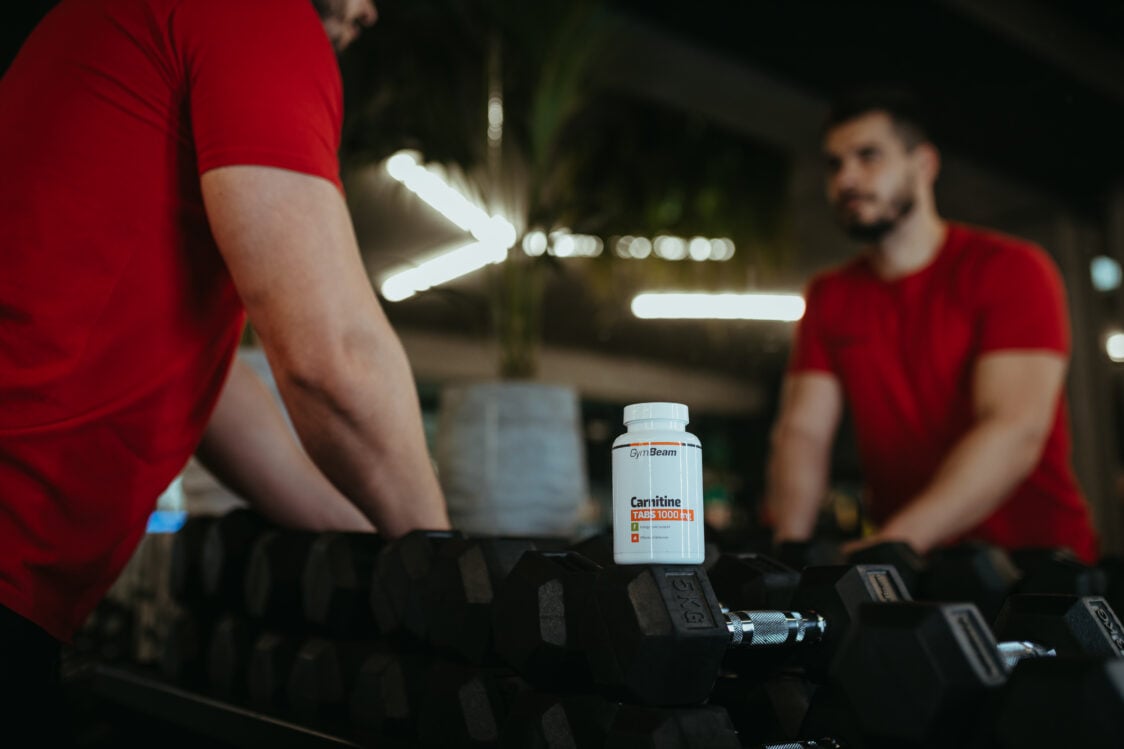
7 tips on how to improve the effects of fat burners and lose weight faster
1. Calorie deficit
I’m sure you already know that the basic rule of thumb for weight loss is to be in a calorie deficit. You cannot lose weight if your caloric intake is higher than your caloric expenditure. And in the same way, the effect of fat burners will be almost zero if you have a high energy intake. On the contrary, the result will rather be weight gain.
A calorie deficit is thus the alpha and omega of weight loss, and burners, thanks to the aforementioned thermogenesis and other factors, can increase this deficit to some extent. They can, for example, give you a boost before a workout, which will make you more enthusiastic about the workout and make you more focused and have a more intensive workout, where you burn more calories.
A calorie deficit of 15-20% of current energy intake is commonly recommended for effective and sustainable weight loss results. [2]
- Calculate how much energy you should consume on an average day with our online online energy and macronutrient intake calculator.
- Using the calculated data, you will be able to create a diet tailored to your exact needs. You can read how to do this in our article Tailor-Made Diet: A Complete Guide to Planning Your Diet by Calories and Macros.
You might be interested in these products:
2. Adequate protein
In order to get the most out of fat burners, it is necessary to keep your diet under control. A protein-rich diet can help you do just that. This is mainly because they contribute to a longer feeling of satiety, which makes you eat less. If you’re properly satiated, you’re also less likely to snack, which makes it easier to maintain a calorie deficit.
As studies show, higher protein consumption is associated with a lower risk of excess body fat. At the same time, having a sufficient proportion of this macronutrient in the diet contributes to maintaining or even increasing muscle mass. And the more muscle you have, the more energy you burn. [3 – 5]
To boost the effects of fat burners, try including more protein in your diet, for example in the form of meat, eggs, dairy products, legumes or plant-based meat alternatives such as tofu.
For example, if you work out and would like to lose weight, your protein intake should fall in the range of 1.6-2.4 g per kg of body weight. You can also ensure sufficient protein intake for your body with protein drinks. In case you are eating a meat-free or plant-based diet, you can make use of plant-based protein sources and plant-based proteins.[6]
- Wondering what is an optimal protein intake? Then you should not miss our article How Much Protein to Eat for Muscle Growth, Weight Loss, Endurance Performance Support or During Pregnancy?
- What functions do proteins have in the body? What are their sources? And what is the risk of protein deficiency? The answers to these questions and more can be found in our article Protein: Its Functions in the Body, Optimal Intake, Food Sources, and What’s at Risk if You’re Deficient.
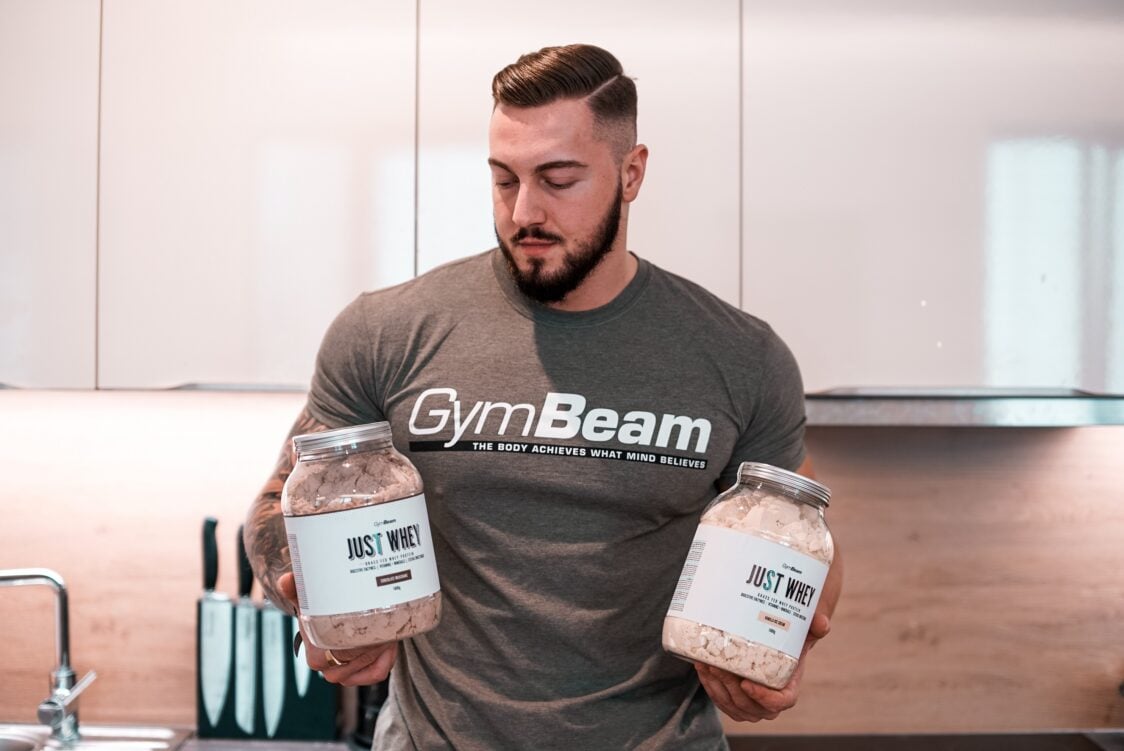
3. Strength training
Fat burners work best after a workout. They push you to perform better, give you more energy and help you burn a few more calories. The combination of strength training and fat burners can thus be an effective combo on the way to your dream physique.
Strength training is helpful in reducing body fat, as confirmed by a review of up to 58 studies which showed that strength training performed for at least 4 weeks helped reduce body fat by an average of 1.46%.[7]
Also, according to one study, strength training combined with cardio training has been shown to be more effective in reducing body fat than endurance training alone. Another analysis of studies found that 10 weeks of strength training can increase calorie burn by 7% and reduce fat by 1.8 kg.[8, 9]
In addition, strength training builds and maintains muscle mass, thus helping you achieve an attractive and athletic physique. And as we mentioned earlier, the more muscle mass you have, the more calories your body burns. [5]
After strength training you also burn calories for another day or two, so to speak, for free. During exercise, the muscles are “damaged” and the body needs to expend extra energy to repair, enlarge and strengthen them. Thus, for the next 24-48 hours after strength training, you will burn about 5-10% more calories compared to when you would not have gone for the workout. This phenomenon is also known as the After-Burn effect.[10]
In addition to burning calories, strength training brings about other benefits such as improved physical performance, fitness, but also cognitive function and self-esteem. Whether it’s lifting weights in the gym or training with your own weight, strength training should definitely not be underestimated and should form part of your workout routine. This is because it will not only help you burn fat more efficiently, but also build a stronger body and mind.
- You can lose weight in different ways, whether it’s through diet, cardio or strength training. If you are wondering what are the pros and cons of these strategies, then you should not miss our article Diet, Cardio and Strength Training. Which is Best for Weight Loss?

4. Cardio and HIIT training
In addition to strength training, which builds muscle and strength, cardio or HIIT training will also help you maximise the effects of fat burners. Fat burners help to increase the burning (oxidation) of fat during a workout, so if you combine them with these activities, you will achieve better results in the form of more calories burned and gradual shedding of extra kilos. [20]
Cardio training, whether it’s running, cycling, walking in the great outdoors or hiking, swimming or skating, helps burn calories and also helps build endurance and strengthen the health of the cardiovascular system. While strength training helps to shape your physique, aerobic activities take care of burning calories.
The effect of cardio activities on the reduction of body fat, as well as visceral fat, is confirmed by several studies. For example, an analysis of 15 studies showed that aerobic exercise is associated with abdominal fat loss in middle-aged women. [15]
In addition to cardio training to maximise the effect of fat burners, you can also include HIIT workouts in your workout routine. This is a high-intensity interval workout that combines short bursts of fast-paced activity with breaks. An example of such an exercise is Tabata, where you perform at your peak performance in short intervals of time. It typically lasts 4 minutes and is divided into 8 rounds in which 20-second stretches of exertion and 10-second stretches of rest alternate. Studies show that this type of exercise is highly effective in burning calories. For example, one study found that people who practiced HIIT training 3 times a week for 10 weeks experienced a significant reduction in the amount of body fat and also a reduction in waist circumference.[16]
HIIT training is an effective way to burn fat in a short time. According to another scientific paper, this type of workout helped people burn 30% more calories in the same amount of time than other types of sporting activities such as cycling or jogging. In addition, similar to strength training, after an intense workout, your body has to repair the muscles or tendons “damaged” by physical exercise. And for these processes it needs to expend energy. This manifests itself in an increase in resting metabolic rate (RMR), where the body burns more calories even when you are not exercising, just like in the case of muscle training. [10, 16]
The recommended dose of the burner before a cardio or HIIT activity will help you burn maximum calories.
- Did you know that you can burn calories with the help of a jump rope? You can find a simple how-to guide in our article How to Jump Rope? 6 Exercises and 3 HIIT Workouts for Intense Calorie Burning.
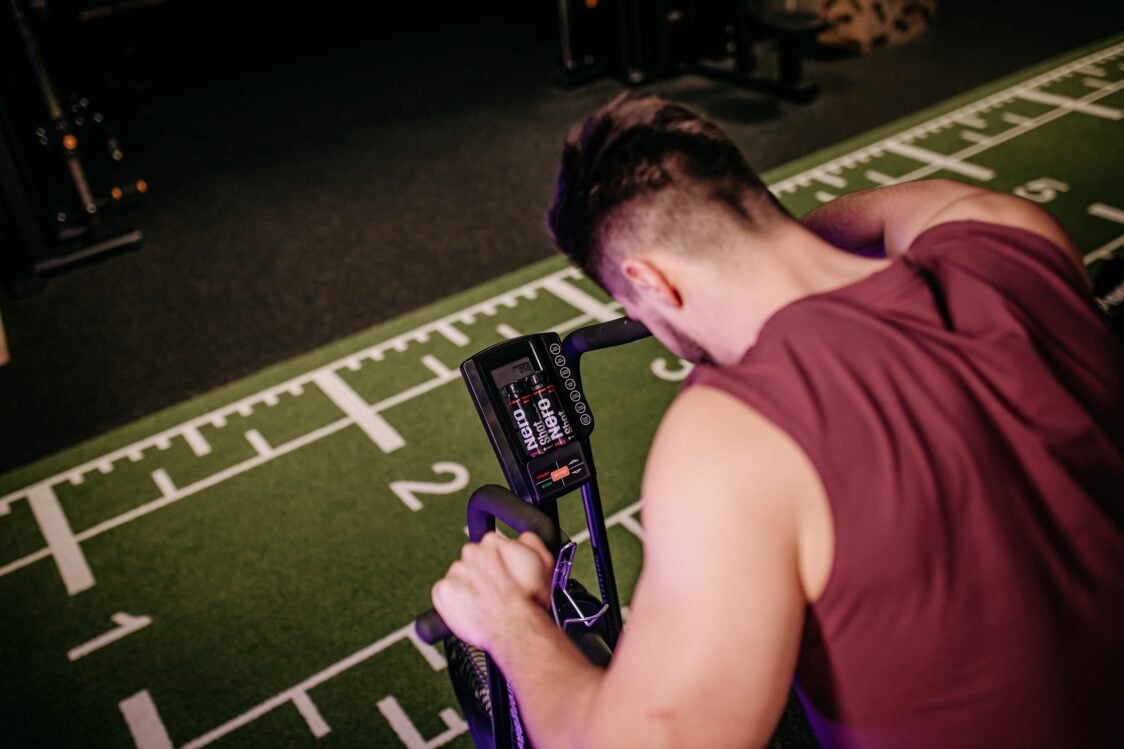
5. Quality sleep
Although it may not seem like it, sleep is also an important factor that affects the effect of fat burners. A healthy sleep routine and getting an ample amount of quality sleep can be helpful on the road to your dream physique. One study that examined the effect of sleep on weight gain over a 10-year period showed that women who slept less than 6 hours had a higher risk of obesity. [11]
Sleep deprivation and its impact on weight gain is also confirmed by other scientific research, the results of which have shown that less than 7 hours of sleep can be reflected in subsequent weight gain.[12]
Further 6-month research on 245 women confirmed that quality sleep for at least 7 hours a day increases the likelihood of weight loss by 33%. [13]
Thus, getting quality, undisturbed sleep can help improve the effects of fat burners by promoting healthy weight loss and preventing the risk of becoming overweight or obese. Hormones play an important role here. Getting enough sleep is important for proper levels of the hunger hormone (ghrelin) and the satiety hormone (leptin). If the quality of your sleep is poor, or if you have not slept enough hours, the levels of these hormones will fluctuate – ghrelin levels will increase and leptin levels will decrease. This then results in an increased appetite, especially for sweet or high-calorie foods. Conversely, on the other hand, if you get enough sleep, you are more satiated, satisfied and don’t have cravings to snack after a meal. [22]
So, in order for sleep not to sabotage weight loss and the effects of fat burners, you need enough sleep, ideally 7 to 9 hours. However, the more physical or mental stress you are under, the more the need for sleep increases. [14]
In order to optimise your sleep routine, you don’t suddenly need big changes in your regime. Even small steps, such as limiting caffeine intake in the evening or the use of electronic devices before bed, are enough to get you off to a good start.
- If you are intrigued by the topic of sleep in relation to weight loss, then be sure not to miss our article Sleep: The Most Effective Booster and Fat Burner.

6. A healthy microbiome
The state of your intestinal flora affects many aspects of your health, from your body’s immunity to your mental health. To maintain the health of the microbiome, probiotics are a good choice. These beneficial bacteria can, among other things, help to make fat burning more efficient and thus increase your chances of losing weight. This is supported by the results of an analysis of 15 studies, which revealed that people who took probiotics experienced a greater decrease in body fat, weight and BMI compared to people who took a placebo. [17, 18]
Supplementing your diet with probiotics, whether through your diet or nutritional supplements, can help support the fat-burning effect and contribute not only to weight loss, but also to your overall health.
To support the health of your microbiome, you can also include fermented products in your diet, which are loaded with beneficial bacteria. These include traditional fermented products such as sauerkraut, fermented vegetables and kimchi. Be sure to give kefir or acidophilus milk a chance, which are also rich in beneficial bacteria. It is also important for microbiome health to “feed” the microbiome properly, which can be helped with fibre, which is what the microbiome enjoys best.
Discover our bestsellers:
7. Active lifestyle
Last but not least, in order to burn fat more efficiently and easily, it is important to regularly exercise. Whether it’s the aforementioned strength, cardio or HIIT training or any other sporting activity, movement and an active lifestyle are important factors in promoting the effects of fat burners.
All movement counts, and on the road to your dream physique, it’s important to incorporate as much regular movement into your day as possible. It can be even small changes, like taking the stairs instead of the elevator. Or on the way to work by public transport, perhaps get off the bus one stop early and walk the rest of the way. If you have the option, you can cycle to work or to the shops, for example. Every step towards a more active lifestyle counts.
If you have time and the weather is right, you can go for a day hike on the weekend, for example. During hiking, an average 65 kg woman can burn about 345 kcal per hour, and an average 80 kg man can burn something around 420 kcal through this activity. So if you go for, say, a 6-hour hike, you will burn on average between 2,000-2,500 kcal over the course of the day. Now that’s a nice number, isn’t it? [19]

And even being home on the weekends, you can still take steps to be more active and burn calories. You can go to the gym in the morning, take a walk in the park in the afternoon, or go for a swim. In addition, you can even burn calories while doing household chores, thus combining the pleasant with the useful.
The lifestyle you lead also has a big impact on how efficiently you burn fat. There is a huge difference between an active and passive approach to life. If you move regularly, your lifestyle is varied and full of different activities, it can help you shed extra kilos and maintain your dream weight.
Which fat burner should you select?
To make the most of the effects of a fat burner, the ideal choice may be to bet on a multi-ingredient fat burner with stimulants such as caffeine and synephrine supplemented with green tea extract (EGCG). This is an effective combo that works synergistically. It’s especially useful before a workout, when it will kick you into high gear and burn more calories. However, if you wish to take the burner before a workout in the evening, it would be better to avoid stimulants and opt for a different type of burner.
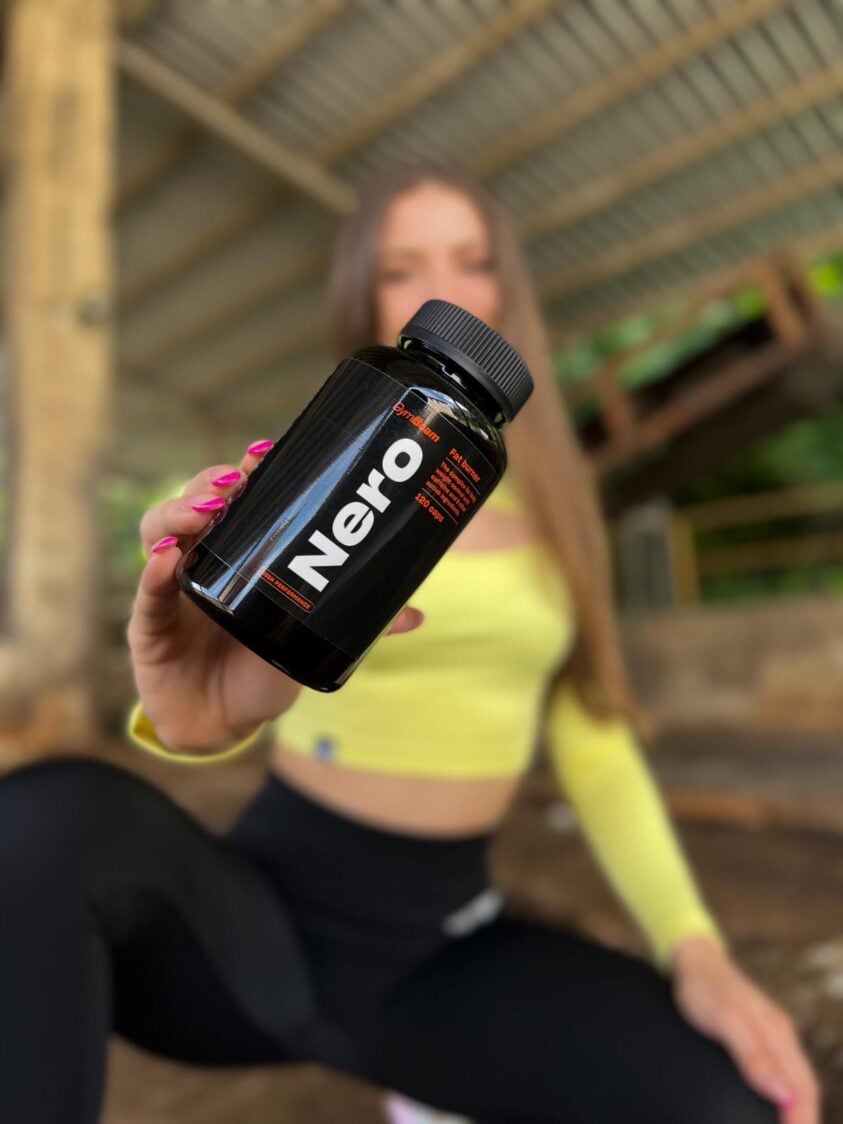
If you select a complex burner containing more than one ingredient, its effect can be further enhanced by a single-component burner which contains an ingredient that is not in the complex burner. This could be for example carnitine, forskolin or garcinia. And if you have sufficient knowledge, you can also make your own single-component burner.
If you are looking for a reliable fat burner with carefully selected ingredients, these fat burners from our product range might be a good choice for you:
- FueBurn – a complex thermogenic fat burner, which is an effective combination of caffeine, synephrine, green tea extract and other substances such as capsaicin, ginger extract or forskolin.
- Nero – the composition of this multi-ingredient burner consists of a combination of caffeine and L-carnitine. It is also supplemented with extracts of green coffee, green, black and white tea.
- BeastBurn – is a complex fat burner with a formula specifically designed for women. It contains caffeine, synephrine, L-carnitine, plant extracts and vitamins.
- NightBurn – a type of burner without stimulants designed for all those who would like to burn fat even at night whilst sleeping. It contains a complex of active ingredients, among which you will also find L-carnitine.
- Appetite Control – is designed for those who would like to control their constant hunger and cravings for sweet or salty foods. Among other substances, it also contains the aforementioned white bean extract, which acts as a carbohydrate blocker.
- Would you like to learn more about how to select but also use a fat burner? Then you should not miss our article How to Select and Use the Most Effective Fat Burner?
And if you would like to learn more about the other active substances, then be sure not to miss these articles:
How to use fat burners?
If you are just starting to supplement with a fat burner, the first step is to study its dosage thoroughly. When it comes to stimulant-based fat burners, it is ideal to take them 30 – 45 minutes before your workout to maximise their effect. Fat burners are available in tablet form but also in liquid form, and so with some you can choose the option that suits you better. If you choose a burner containing caffeine, then be careful not to exceed its safe daily dose. In fact, for the average adult, caffeine intake should not exceed 400 mg/day from all sources. [23]
It is also important to make sure you are drinking enough when taking burners. As some have a thermogenic effect and can make you sweat more, you should not forget to replenish fluids regularly.
What should you remember?
Fat burners can help you lose fat and be a few kilos lighter, but it’s important to support their effect. They won’t do the job for you on their own. When it comes to weight loss, it is important to have a calorie deficit, but also a balanced diet rich not only in protein, but also in healthy fats, vitamins and minerals. You can also support fat burning with physical activity, such as strength training, but also cardio or HIIT training. To further multiply the effect of fat burners, you also need to make sure you get a good night’s sleep and look after the health of your microbiome. The combination of these tips can thus help you on your way to your dream figure.
Have you tried fat burners? Share with us your weight loss experiences. And if you liked this article, support us by sharing it among your friends. Maybe you can help them make their weight loss efforts more effective.
[1] JEUKENDRUP, A.E., RANDELL, R. Fat burners: nutrition supplements that increase fat metabolism. – https://pubmed.ncbi.nlm.nih.gov/21951331/
[2] SPEAKMAN, J.R., MITCHELL, S.E. Caloric restriction. – https://www.sciencedirect.com/science/article/abs/pii/S009829971100032X?via%3Dihub
[3] SIMONSON, M., BOIRIE, Y., GUILLET, C. Protein, amino acids and obesity treatment. – https://www.ncbi.nlm.nih.gov/pmc/articles/PMC7455583/
[4] HUANG, G., PENCINA, K., LI, Z., APOVIAN, C.M., TRAVISON, T.G., STORER, T.W., GAGLIANO-JUCÁ, T., BASARIA, S., BHASIN, S. Effect of Protein Intake on Visceral Abdominal Fat and Metabolic Biomarkers in Older Men With Functional Limitations: Results From a Randomized Clinical Trial. – https://www.ncbi.nlm.nih.gov/pmc/articles/PMC8140050/
[5] ALBERGA, A.S., PRUD'HOMME, D., KENNY, G.P., GOLDFIELD, G.S., HADJIYANNAKIS, S., GOUGEON, R., PHILLIPS, P., MALCOLM, J., WELLS, G., DOUCETTE, S., MA, J., SIGAL, R.J. Effects of aerobic and resistance training on abdominal fat, apolipoproteins and high-sensitivity C-reactive protein in adolescents with obesity: the HEARTY randomized clinical trial. – https://pubmed.ncbi.nlm.nih.gov/26202452/
[6] Optimal Protein Intake Guide. – https://examine.com/guides/protein-intake/
[7] WEWEGE, M.A., DESAI, I., HONEY, C., COORIE, B., JONES, M.D., CLIFFORD, B.K., LEAKE, H.B., HAGSTROM, A.D. The Effect of Resistance Training in Healthy Adults on Body Fat Percentage, Fat Mass and Visceral Fat: A Systematic Review and Meta-Analysis. – https://pubmed.ncbi.nlm.nih.gov/34536199/
[8] ALBERGA, A.S., PRUD'HOMME, D., KENNY, G.P., GOLDFIELD, G.S., HADJIYANNAKIS, S., GOUGEON, R., PHILLIPS, P., MALCOLM, J., WELLS, G., DOUCETTE, S., MA, J., SIGAL, R.J. Effects of aerobic and resistance training on abdominal fat, apolipoproteins and high-sensitivity C-reactive protein in adolescents with obesity: the HEARTY randomized clinical trial. – https://pubmed.ncbi.nlm.nih.gov/26202452/
[9] WESTCOTT, W.L. Resistance training is medicine: effects of strength training on health. – https://pubmed.ncbi.nlm.nih.gov/22777332/
[10] DOLEZAL, B.A., POTTEIGER, J.A., JACOBSEN, D.J., BENEDICT, S.H. Muscle damage and resting metabolic rate after acute resistance exercise with an eccentric overload. – https://pubmed.ncbi.nlm.nih.gov/10912882/
[11] THEORELL-HAGLÖW, J., BERGLUND, L., BERNE, C., LINDBERG, E. Both habitual short sleepers and long sleepers are at greater risk of obesity: a population-based 10-year follow-up in women. – https://pubmed.ncbi.nlm.nih.gov/25113417/
[12] PATEL, S.R., MALHOTRA, A., WHITE, D.P., GOTTLIEB, D.J., HU, F.B. Association between reduced sleep and weight gain in women. – https://pubmed.ncbi.nlm.nih.gov/16914506/
[13] THOMSON, C.A., MORROW, K.L., FLATT, S.W., WERTHEIM, B.C., PERFECT, M.M., RAVIA, J.J., SHERWOOD, N.E., KARANJA, N., ROCK, C.L. Relationship between sleep quality and quantity and weight loss in women participating in a weight-loss intervention trial. – https://pubmed.ncbi.nlm.nih.gov/22402738/
[14] MUKHERJEE, .S, PATEL, S.R., KALES, S.N., AYAS, N.T., STROHL, K.P., GOZAL, D., MALHOTRA, A. An Official American Thoracic Society Statement: The Importance of Healthy Sleep. Recommendations and Future Priorities. – https://pubmed.ncbi.nlm.nih.gov/26075423/
[15] PARK, S.H., KIM, C.G. Effects of aerobic exercise on waist circumference, VO2 max, blood glucose, insulin, and lipid index in middle-aged women: A meta-analysis of randomized controlled trials. – https://pubmed.ncbi.nlm.nih.gov/33825676/
[16] WEWEGE, M., VAN DEN BERG, R., WARD, R.E., KEECH, A. The effects of high-intensity interval training vs. moderate-intensity continuous training on body composition in overweight and obese adults: a systematic review and meta-analysis. – https://pubmed.ncbi.nlm.nih.gov/28401638/
[17] LEY, R.E., TURNBAUGH, P.J., KLEIN, S., GORDON, J.I. Microbial ecology: human gut microbes associated with obesity. – https://pubmed.ncbi.nlm.nih.gov/17183309/
[18] BORGERAAS, H., JOHNSON, L.K., SKATTEBU, J., HERTEL, J.K., HJELMESAETH, J. Effects of probiotics on body weight, body mass index, fat mass and fat percentage in subjects with overweight or obesity: a systematic review and meta-analysis of randomized controlled trials. – https://pubmed.ncbi.nlm.nih.gov/29047207/
[19] Walking – Compendium of Physical Activities. – https://pacompendium.com/walking/
[20] JEUKENDRUP, A.E., RANDELL, R. Fat burners: nutrition supplements that increase fat metabolism. – https://pubmed.ncbi.nlm.nih.gov/21951331/
[21] BARRETT, M.L., UDANI, J.K. A proprietary alpha-amylase inhibitor from white bean (Phaseolus vulgaris): a review of clinical studies on weight loss and glycemic control. – https://pubmed.ncbi.nlm.nih.gov/21414227/
[22] DASHTI, H.S., SCHEER, F.A., JACQUES, P.F., LAMON-FAVA, S., ORDOVÁS, J.M. Short sleep duration and dietary intake: epidemiologic evidence, mechanisms, and health implications. – https://pubmed.ncbi.nlm.nih.gov/26567190/
[23] Safety of caffeine. – https://www.efsa.europa.eu/en/efsajournal/pub/4102


Add a comment